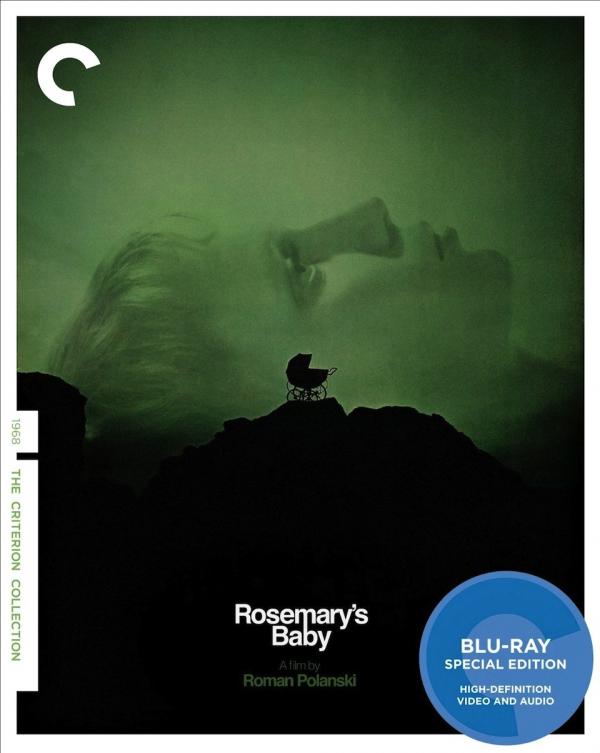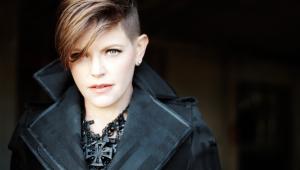New Movies for October 30, 2012: A Post-Halloween Horror Feast

Rosemary's Baby
For his Hollywood debut, Roman Polanski chose to make this adaptation of Ira Levin's best selling psychological horror thriller. It concerns a young couple move into a new building. And then everything becomes strange. . .
Once established in their new apartment, Rosemary (Mia Farrow) and Guy Castevets (John Cassavetes) discuss having a baby, but Guy wants to develop his acting career first and wifey goes along with him. Meanwhile, Rosemary gradually becomes friends with Terry (Victoria Vetri), an ex-homeless druggy who has been taken in by Minnie (Ruth Gordon, who won an Oscar for her portrayal of the nosy neighbor) and Roman (Sidney Blackmer), who live right across the hall from the Castevetses.
One day, Rosemary comes home to find that her new gal pal is splayed on the pavement, having apparently jumped from the seventh floor. Guy gets his dream acting job, Rosemary becomes pregnant, and the couple become friendlier with their neighbors who helpfully arrange for Rosemary to see Dr. Sapirstein (Ralph Bellamy). Rosemary prefers Dr. Hill (Charles Grodin) but she's persuaded by Minnie and Roman's telling her that it's best for the baby, since Sapirstein is the most talented doc in town. And, for the sake of the baby, she'd better take this glass of something that's good for expectant mothers. Soon after, Rosemary is visited by Hutch, an old friend who's concerned at how bad she looks. But Hutch ends up in a deep coma and dies. He leaves her a book about witches and black magic.
Rosemary's Baby reeks of an intense atmosphere of bizarre normality with every slightly strange and sinister development plausibly explainable or undercut by the dark humor of the film, Are things really amiss or is that just Rosemary's pregnant paranoia over her unborn child? Right up until the end, you're left guessing as to just what's going on, but when you find out it's highly satisfying.
In this digital restoration of Rosemary's Baby (1968) a new transfer was created in 4K from the 35mm camera negative before all dirt, damage, and jitter were manually removed. It was approved by Polanski.
Video: 1.85:1. Audio: LPCM Mono. Extras: Remembering Rosemary's Baby new 47 minute documentary, Komeda, Komeda 71 minute documentary on the life and work of Polish jazz musician and composer Krzysztof Komeda who was a longtime associate of Roman Polanski and composed the scores for a number of his films includingTwo Men and a Wardrobe, Cul-De-Sac, and Rosemary's Baby, Ira Levin interviewed on the Leonard Lopate WNYC radio program in September 1997 discussing his new novel Son of Rosemary, booklet featuring an essay by critic Ed Park and Ira Levin's afterword for the 2003 New American Library edition of his novel. Studio: The Criterion Collection.
House of Dark Shadows and Night of Dark Shadows
It's hard out there for a vamp. The horror hots up with House of Dark Shadows (1970) and Night of Dark Shadows (1971), two cinematic spin-offs of the popular television soap opera Dark Shadows - about the supernatural gothic goings on at the eerie, atmospheric Collinwood Mansion - which ran from 1966-71 and was recently Tim Burtonized into a film of the same name.
In the romantically gruesome House of Dark Shadows the heavily mannered, 200-year-old vampire, Barnabas Collins (Jonathan Frid, who portrayed the character in the TV series) seeks to shed his bloodsucking bad habits through a series of secret serum injections offered by Dr. Julia Hoffman (Grayson Hall) so that his love of the beautiful family governess Maggie (Kathryn Leigh Scott) - who resembles his long-lost fiancée Josette (Kathryn Leigh Scott) - might finally be fulfilled unimpaired by the ghastly depravity and toothy inconvenience of his situation. Unfortunately Dr. Julia, who is in love with Barnabas and madly jealous about Maggie, tampers with the formula and….
House was shot at Lyndhurst Estate in Tarrytown, New York and at nearby Sleepy Hollow Cemetery.
The Dark Shadows TV series told of many creatures and characters beyond Barnabas and Night of Dark Shadows focuses on more minor members of the Collins clan. Painter Quentin Collins (David Selby) and his bride, Tracy (Kate Jackson), proudly move into his inherited home but soon he begins to be blinded by bizarre visions and hallucinatory haunting dreams about his ancestor Charles Collins and his ancestor's mistress Angelique from a couple of centuries past. The housekeeper Carlotta (Grayson Hall) reveals to Quentin that she is the reincarnation of Sarah Castle, a little girl who had lived at Collinwood over 150 years ago and therefore she knows Quentin to be the reincarnation of Charles Collins (David Selby) who had an affair with brother's wife Angelique which led to her being hanged and him being sealed alive in the family crypt with Angelique's corpse for company and, naturally, Quentin then becomes possessed by the spirit of Charles Collins and attempts to drown Tracy in a disused swimming pool. Come back Barnabas, all is forgiven. Well mostly.
Both films were directed by Dan Curtis.
Both, Video: 1.78:1. Audio: DTS-HD Master Audio Mono. Extras: none. Studio: Warner.
Long Day's Journey Into Night
And the horror continues with director Sidney Lumet's 1962 film adaptation of Eugene O'Neill's loving, Edward Gorey-ish theatrical portrait of his family. It's a brilliantly cast, beautifully realized production of the powerful, three-hour psychodrama masterpiece. There's mother, Mary (Katharine Hepburn), a convent-bred, Irish Catholic morphine addict just back from a stay in the sanatorium, histrionic paterfamilias James Tyrone (Ralph Richardson), an aging, once popular actor now wealthy but stingy as hell, older brother Jamie (Jason Robards) who has committed himself to a life of total cynicism and absolute alcoholism, and the Eugene-esque youngest son, Edmund (Dean Stockwell), a sensitive aspiring writer just returned home broke and consumptive after a time working as a merchant seaman - and now trying to keep up with his father and brother's formidable drinking capacities. These colorful characters have a family gathering at their seaside summer home in 1912 in new London, Connecticut. Over the course of one day, Mary's concern over Edmund, whose illness is confirmed, pushes her to the needle and the family to tear at each other in bitter quarreling, recrimination, and hurling the past in each other's faces, all fueled and facilitated by past pain and insane quantities of alcohol.
Written in 1941–42 but only published in 1956, Long Day's Journey Into Night posthumously won O'Neill the 1957 Pulitzer Prize for Drama. The screenplay was written by Eugene O'Neill and the music score by André Previn. At 1962's Cannes Film Festival Richardson, Robards, and Stockwell all received Best Actor awards and Hepburn Best Actress. Hepburn's performance was later nominated for an Oscar for Best Actress.
Video: 1.78:1. Audio: DTS-HD Master Audio Mono. Extras: none. Studio: Olive Films.
Copper: Season One
Copper, BBC America's first original scripted program, is a TV drama series created by Tom Fontana (creator of Oz and writer/producer of Homicide: Life on the Street and St. Elsewhere) and Will Rokos (co-producer of Southland and Monster's Ball). Set in 1864 during the American Civil War, a rough and ready young Irish immigrant police detective, Kevin "Corky" Corcoran (Tom Weston-Jones), attempts to keep the peace and protect the poor, unruly immigrant sods forced to live in the Five Points neighborhood of New York City - by any means possible (much to the dismay of his superiors). At the same time he's trying to investigate what has happened to his wife who went missing and his daughter who was killed while he was off fighting in the Civil War. In all these struggles to solve seemingly insoluble crimes he's assisted by his partner and pal, Sixth Precinct detectives Francis Maguire (Kevin Ryan) and Andrew O'Brien (lan Taylor), as well as African-American physician and amateur pathologist, Matthew Freeman (Ato Essandoh),and Robert Morehouse (Kyle Schmid), the son of a wealthy industrialist who was formerly their major in the Union Army.
Copper also explores the impact of the American Civil War -including the Confederates' attempts to burn New York - on the residents of the 'hood as well as the social inequalities involving New York's above-the-law uptown Fifth Avenue aristocracy and the emerging African-American community in rural northern Manhattan.
All 10 episodes of Season 1 appear on this two-disc set.
Video: 1.78:1. Audio: DTS-HD Master Audio 5.1. Extras: commentary, deleted scenes, making-of documentary, featurettes, character video profiles; UltraViolet digital copy for streaming/downloading. Studio: BBC.
- Log in or register to post comments




































































